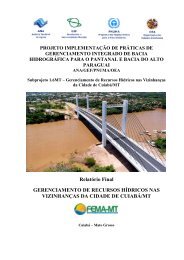Rt€@lll
Rt€@lll
Rt€@lll
Create successful ePaper yourself
Turn your PDF publications into a flip-book with our unique Google optimized e-Paper software.
- 20t<br />
In Thailand, there is one reported existing coral reef reserve (Salvat, 1982). Efforls<br />
exist to conserve centain areas in the Gulf of Thailand, amonq them reefs around the islands<br />
off Pataya and Rayong, and the Ang Tonq group of islands (Sudara, IgBl). ln addition,<br />
recommendations have been made for the classificalion of areas for preservation, tourism,<br />
and fisheries development, as well as the launching of informal edueation campaigns.<br />
SUMMARY<br />
Efforts to quantiLatively assess the conditions of coral reefs m a relatively Iarge scale<br />
date back only to the last decade on so in most of the ASEAN countries. Tl-rese efforts,<br />
however, have picked up considerably in recent years, especially with the active<br />
inconporation by national governments of resource conservation and management goals in<br />
official policies. A cornprehensive picture of the status of South-East Asian reefs shbuld be<br />
emenging within the foreseeable fulure with the inception of the coral project of the EasL<br />
Asian Seas Regional Programme of UNEP.<br />
Natunal causes of reef destruction eonLinue to figure significanlly in the reqion. These<br />
include water movement, geological dynarnics and biological interactions. Recent<br />
documentation exists of damage to corals caused by predation by lhe starfish Acanthaster<br />
planci and the gastropod Drupella rugosa. other feports of destruction involvG!6iffi<br />
during low tides' freshwater run-off and burial by river-borne sediments.<br />
As gleaned from the literature, siltation and destructive fishing still constitute the<br />
most important man-caused factors of neef degradation in the East Asian Seas. The more<br />
significant activities bringing about siltation are widespread deforestaLion, bad agricultural<br />
practices and mangrove denudation. Dredging along the coast for various purposeJ including<br />
offshore mining is, however, also assuming greater importance.<br />
Destructive fishing remains associated primarily with the use of various types of<br />
explosives, in spite of their ban in most places. The aquarium fish industry, for the most part<br />
overlooked, is a growing cause for concern, especially when rnismanaged.<br />
The mining of coral reefs for building materials has resulted in severe damage in a<br />
number of localities. Of a lesser rnagnitude but nevertheless deserving of attention is reef<br />
perlurbation brought about by tourism and collection of the biota.<br />
Various forms of pollution are associated with a growing human popu lation and<br />
accelerated industrialization. Although their effects are concentrated at present in a few<br />
ateasr these are bound to spread in the near future. Of particular relevance in the region is<br />
ihe problem of oil pollution, with many living reefs being tapped for oil explora[ion. Stitt<br />
other problems are associated with Lhe inevitable growth of shipping activities.<br />
As a manifestation of lhe growing concern over the increasing extent and severity of<br />
man-caused reef destruction, moves have been made in recent times to establish marine<br />
reserves in Indonesia, Malaysia, the Philippines and Thailand. Though small in rumber et<br />
presentr these reserves will hopefully be incorporated into a larger network within a realistic<br />
scheme ensuring the viability of not mly the reefs but the marine ecosyetem as a whole.<br />
Concerned individuals in each country are currently working toward this end.


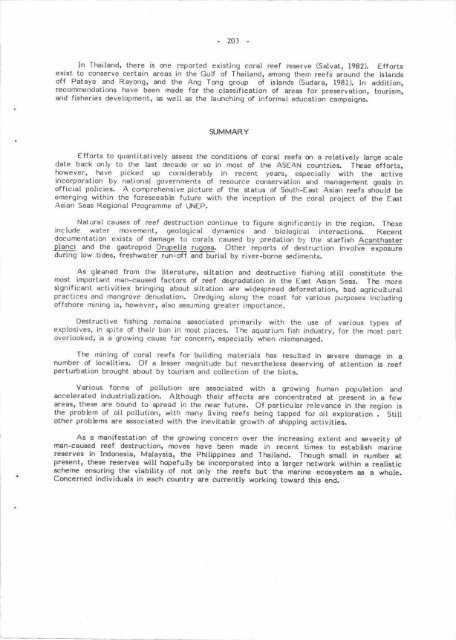
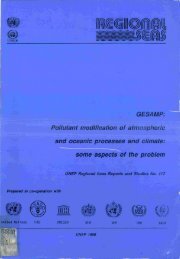
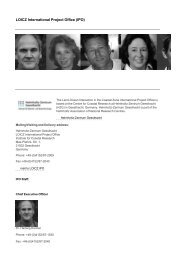
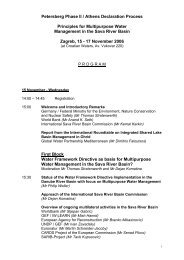
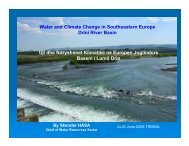
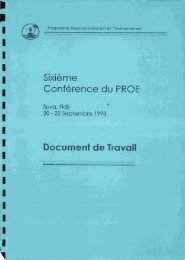
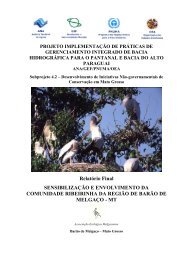
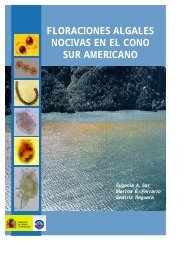
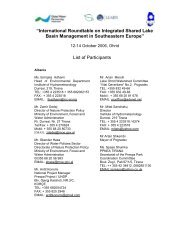

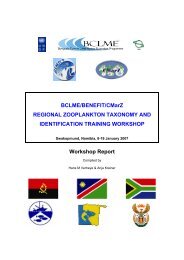
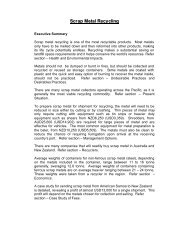
![R]€@lll](https://img.yumpu.com/7594335/1/175x260/reurlll.jpg?quality=85)
